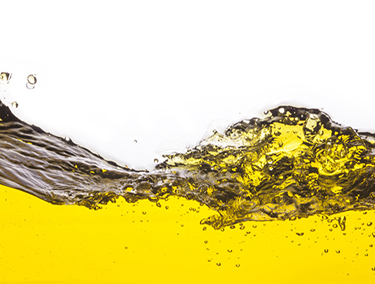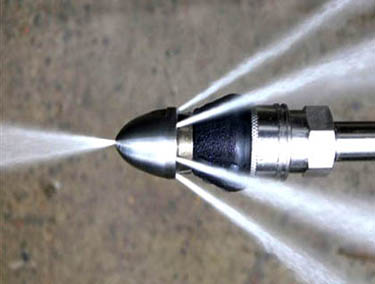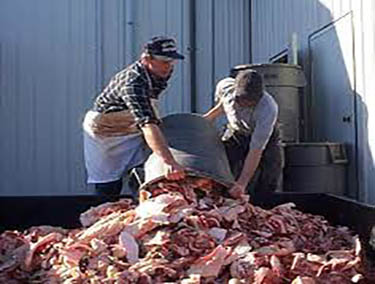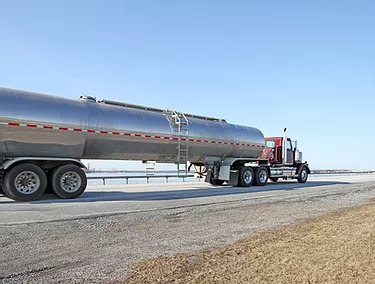Biodiesel Blend
Biodiesel can be blended and used in many different concentrations. The most common are B5 (up to 5% biodiesel) and B20 (6% to 20% biodiesel). B100 (pure biodiesel) is typically used as a blendstock to produce lower blends and is rarely used as a transportation fuel.
Low-Level Blends
ASTM International develops specifications for a wide variety of products, including conventional diesel fuel (ASTM D975). This specification allows for biodiesel concentrations of up to B5 to be called diesel fuel, with no separate labeling required at the pump. Low-level biodiesel blends, such as B5, are ASTM-approved for safe operation in any compression-ignition engine designed to be operated on petroleum diesel. This can include light-duty and heavy-duty diesel cars and trucks, tractors, boats, and electrical generators.
B20
B20 is a common blend because it represents a good balance of cost, emissions, cold-weather performance, materials compatibility, and ability to act as a solvent. Most biodiesel users purchase B20 or lower blends from their normal fuel distributors or from biodiesel marketers. Regulated fleets that use biodiesel blends of 20% or higher qualify for biodiesel fuel use credits under the Energy Policy Act of 1992.
B20 must meet prescribed quality standards as specified by ASTM D7467. The U.S. Department of Energy’s Office of Energy Efficiency and Renewable Energy’s Vehicle Technologies Office has supported work to test and improve biodiesel quality, helping more fuel meet ASTM standards.
Generally, B20 and lower-level blends can be used in current engines without modifications. In fact, many diesel engine original equipment manufacturers (OEMs) approve the use of B20 (see the National Biodiesel Board’s OEM Information for those that support the use of biodiesel blends). Users should always consult their vehicle and engine warranty statements before using biodiesel. For more information about OEM-approved biodiesel use in vehicles, see the Biodiesel Handling and Use Guide(PDF).
Engines operating on B20 have similar fuel consumption, horsepower, and torque to engines running on petroleum diesel. B20 with 20% biodiesel content will have 1% to 2% less energy per gallon than petroleum diesel, but many B20 users report no noticeable difference in performance or fuel economy. Biodiesel also has some emissions benefits, especially for engines manufactured before 2010. For engines equipped with selective catalytic reduction (SCR) systems, the air quality benefits are the same whether running on biodiesel or petroleum diesel.
However, biodiesel still offers greater greenhouse gas benefits than conventional diesel fuel. The emissions benefit is roughly commensurate with the blend level; that is, B20 would have 20% of the emissions reduction benefit of B100.
B100 and High-Level Blends
B100 and other high-level biodiesel blends are less common than B20 and lower blends due to a lack of regulatory incentives and pricing. Biodiesel-compatible material for certain parts, such as hoses and gaskets, allow B100 to be used in some engines built since 1994. B100 has a solvent effect; it can clean a vehicle’s fuel system and release deposits accumulated from petroleum diesel use. The release of these deposits may initially clog filters and require frequent filter replacement in the first few tanks of high-level blends.
When using high-level blends, several factors should be considered. Pure biodiesel contains less energy on a volumetric basis than petroleum diesel. Therefore, the higher the percentage of biodiesel (above 20%), the lower the energy content per gallon. High-level biodiesel blends can also impact engine warranties, gel in cold temperatures, and may present unique storage issues. B100 use could also increase nitrogen oxide emissions, although it greatly reduces other toxic emissions.
B100 requires special handling and may require equipment modifications. To avoid engine operational problems, B100 must meet the requirements of ASTM D6751, Standard Specification for Biodiesel Fuel (B100) Blend Stock for Distillate Fuels (summary of requirements). ASTM Specification D6751 includes a No.1-B and a No.2-B grade. The No.1-B grade has stricter limits on monoglycerides and filterability than the No.2-B grade. The No.1-B grade is a special-purpose biodiesel grade for use in applications where low temperature operability is needed.







